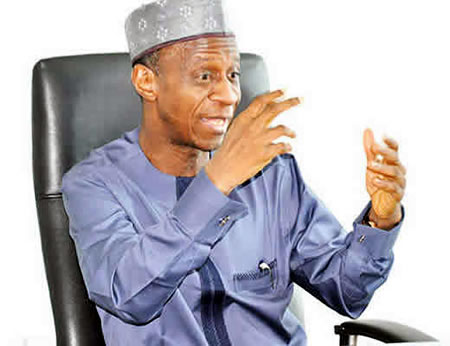The Executive Secretary of Tertiary Education Trust, Professor Suleiman Bogoro, has said that the Federal Government is resolving the problem of stranded Nigerian scholars abroad, saying the agency has so far spent about N7.2 billion in sorting out over 1000 of them.
Bogoro made this known during the weekend in Abuja while briefing members of Education Correspondents Association of Nigeria (ECAN) on activities of the intervention agency in the outgoing year.
He also disclosed that the agency within the period under review has shifted focus from intervention on physical infrastructure to research and content development in line with the desire of the current administration to move the nation in the direction of a knowledge-based economy.
He said there is now increased commitment of funds to research, saying out of the N5 billion National Research Fund approved by President Muhammadu Buhari, about 128 applicants for the research grant have been found worthy to be supported with about N4 billion.
ALSO READ: Exciting roller coaster of joy as Glo My Own Don Beta hits Benin City
He said on his return, the first priority was to address the issue of the stranded Nigerian students in foreign countries, the development he said was unacceptable.
Bogoro said he came at a time when there were series of protests in some of the Nigerian embassies abroad by scholars who were stranded, attributing this to some in-house policy changes soon after he left office in 2016.
He disclosed that one of the policy summersaults was the approval of three (3) years ceiling for scholars pursuing their doctorate degrees abroad, explaining that often times, scholars who were unable to complete their programmes within this stipulated time became stranded.
He said: “We discovered that over time, it became difficult in many countries to complete the PhD in 3 years. It became clear that about the average was 4 years, some even go up to 5 years to complete the programme.
“On return, I made a case to the Board of Trustees and in order not to encourage people not to be committed, I asked that the number of years is scaled up to 4 years and the Board approved it,” he said.
He further explained that all the new entrance from 2019 to 2020, would enjoy the four years duration for their PhD programmes.
Besides, the TETFund boss said some infractions were also discovered at the home institution levels where a scholar is told to proceed to school while the institution processes payment of tuition fees and other entitlements with TETFund.
“We discovered from the records I have that when the money is released to the institutions, they will sit on it. Whether they are trading with the money, only God knows. It takes six months, one year or even more with scholars waiting. What other name do you call them other than stranded scholars,” he said.
He said it was worrisome when the situation was reviewed and discovered that significant percentage of the affected students were at the level of institution, disclosing that this informed the decision of the fund to stop payment of tuition fees of the scholars through their home institutions.
He noted that the scholars were now excited, with their frustrations reduced as their tuition fees are being sent directly to them in their various institutions abroad.
He deplored sharp practices where some lecturers collect money for conferences and send proxies to sign attendance them, saying this was a serious issue that is unacceptable and would not be treated with kid gloves.
He warned that anyone found culpable in such infractions would be dealt with accordingly, because “If my staff in TETFund engaged in an infraction, I have never allowed it. I cannot allow either lecturer or heads of institutions as it were, be it Vice-Chancellor, Rector, Provost, to encourage or go into collusion.”
Bogoro recalled that the Impact Assessment Committee he inaugurated a few months ago, was a new innovation in TETFund that is rare in the public service by inviting independent experts to assess the books on the intervention activities of the agency from 1999 to 2019.
“We open the books for them to assess and tell us our story, whether we are making progress, where we can improve and where we have done poorly. The experts that we got include Professor Placid Njoku who is a Co-Chair of the Committee and I told them to be frank,” he said.




